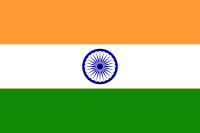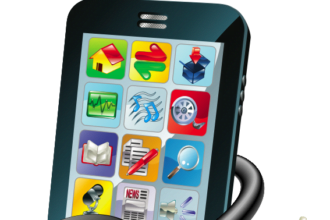The world is experiencing a revolution in healthcare. The exponential growth of mobile communications, not only in developed countries but also in the developing world, combined with increasing innovation in harnessing the power of mobile technologies, has resulted in a groundswell of activity in mobile health (also known as mHealth).
Defining mHealth
The world is experiencing a revolution in healthcare. The exponential growth of mobile communications, not only in developed countries but also in the developing world, combined with increasing innovation in harnessing the power of mobile technologies, has resulted in a groundswell of activity in mobile health (also known as mHealth).
Defining mHealth
Although to date, there is no standard definition of mHealth, it is commonly understood to encompass the use of mobile devices and wireless technologies to support the achievement of health objectives.
This article will present an overview of the barriers that countries face in implementing mHealth and highlight some solutions, based on the findings of the two most recent global surveys – Emerging mHealth:paths for growth, and mHealth:New horizons for health through mobile technologies. Understanding and finding solutions to these barriers is vital so that resources can be allocated to optimally put public health initiatives into practice.
(1) Emerging mHealth: paths for growth
Published in June 2012, this study conducted for PwC Global Healthcare by the Economist Intelligence Unit (EIU) found that consumers have high expectations for mHealth. This is particularly true in emerging economies, where it is perceived as a way to increase access to healthcare; patients in developed economies see it as a way to improve the convenience, cost and quality of healthcare. However, despite consumer demand and growing evidence that it has the potential to transform health service delivery across the globe, mHealth has failed to deliver on its promise.
The main barriers to implementation are not technological but rather, according to David Levy, MD, PwC global healthcare leader, “systemic to healthcare and inherent resistance to change.”
Paradoxically, as PwC’s Christopher Wasden, observes, in developed markets mHealth is perceived as disrupting the status quo; whereas in emerging economies (where healthcare is less constrained by healthcare infrastructure and entrenched interests) it is seen as creating a new market of opportunity and growth.
Barriers to Implementation
(a) Lack of physician support
The development of the mobile health industry has been driven by mobile network operators, app developers and device makers, with less buy-in by the medical fraternity. The EIU study reports that the majority of doctors cite the lack of proven business models as a barrier to the adoption of mHealth. More than one quarter cite an inherently conservative culture as a further obstacle. Moreover, 42% of doctors surveyed expressed concern that mHealth will make patients too independent.
(b) Lack of existing technology
Public sector doctors and payers cited lack of existing technology as the biggest barrier to greater use of mHealth. Only 40% of private practices and 63% of public sector offices and hospitals worldwide have wireless connectivity.
(c) Concerns about regulation and efficacy of applications
Medical apps exploded onto the scene in 2010 and have grown by about 150 percent each year since, according to MobiHealth. There are aproximately 40,000 medical applications available for download on smartphones and tablets. The offerings range from very basic free apps that calculate body mass index to more sophisticated ones such as Sanofi’s iBGStar, an app for diabetics that registers glucose levels.
Smartphone apps may hold great promise, but evidence based research lags behind technological innovation and their efficacy is yet to be determined. More than two-thirds of consumer respondents who have used mHealth wellness or fitness applications discontinued it after the first six months, and only 27% of physicians encourage their use by patients, with 13% of physicians actively discouraging it. The inability to ensure the proper use of medical apps, and a concern that patients would become too independent and avoid regular office visits were cited as reasons for discouraging their use.
Beyond patient use of health apps, concern about industry regulations was the biggest drawback to deploying mobile health solutions – so far, the market has been unregulated . The Food and Drug Administration are seeking to change this. Last year, they released a first draft of guidelines that require developers making medical claims for health apps to apply for FDA approval. The challenge now facing regulators and developers is how to come up with solutions that balance public interest with innovation.
A full copy of the EIU report is available for download at www.pwc.com/mhealth
(2) mHealth: New horizons for health through mobile technologies
Published last year, by the World Health Organization, this comprehensive study outlined global barriers to mHealth implementation and suggested solutions to overcome barriers.
(a) Competing health system priorities
Health systems worldwide are severely overburdened. With increasing pressure to perform under multiple health challenges, chronic staff shortages, and limited budgets, they are constantly challenged by the need to make decisions about competing priorities. Since mHealth currently lacks a strong evidence base to verify its impact on health outcomes, it is not surprising that funding is generally allocated to other programmes ahead of mHealth.
(b) Limited evaluation
Although the level of mHealth activity is growing in countries, evaluation of those activities by member states is very low (12%). There is little published evidence on the efficacy or cost-effectiveness of mHealth interventions. The report highlights the need for evaluation studies of mHealth applications across a range of settings and target groups.
(c) Absence of legal guidelines on privacy and confidentiality
Data security is a particularly important issue to address within the area of policy. The European (56%) and Americas (50%) regions reported the absence of legal guidelines on privacy and confidentiality as the two most important barriers to mHealth implementation.
(3) Solutions
Overcoming the main barriers to mHealth implementation requires an inter-disciplinary, multi-step approach. It should include public awareness campaigns, improved guidelines for use, research and development, and above all meaningful and measurable performance indicators. This will require a greater consensus on the research agenda and a move towards standardized benchmarks and metrics to evaluate impact. Educating the public about the benefits of mHealth, raising awareness among healthcare workers, keeping stakeholders informed of trends and developments in the field, and communicating research findings in order to provide solid evidence on which policy-makers can base decisions, are all a necessary part of the process.
Policy-makers also need to be made aware of security issues in the mHealth domain, so appropriate policies and strategies can be developed and implemented. There are legitimate concerns about the security of citizen information by programmes using mobile health technologies. Legal frameworks that govern the integrity of health data transfer and storage, in addition to identifying access control and medical liability are critical to the implementation of mHealth.
The WHO report suggests that Member States will progress further in implementation if they share global ICT standards and architecture. Most mHealth solutions to date are independent, local initiatives, least likely to be the most cost-effective solution. Integrated, interoperable systems are more apt to provide greater benefits in terms of cost and effectiveness. The report suggests that technology industry leaders could lead this effort, motivated by corporate social responsibility as well as profit. Evaluation should be built into the operational model with the support of stakeholders particularly academia, governments, and industry to ensure better quality results.
Both the EIU and WHO studies show more progress in mHealth applications than predicted, but overcoming the barriers to implementation in this nascent market will require sustained collaboration across global boundaries. There is a need to reduce duplication of efforts and move towards interoperability to create safe, scalable and effective programs. The potential of mHealth applications to aid in medical research and health care and to offer attractive low-cost, real-time ways to assess disease and manage health conditions already exists. What is needed now is for health researchers, technology developers and software designers to work together to build the solid foundation of evidence that is currently lacking in the mHealth domain.
A full copy of the WHO report is available for download at www.who.int/goe/publications








